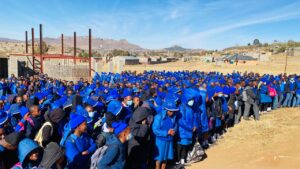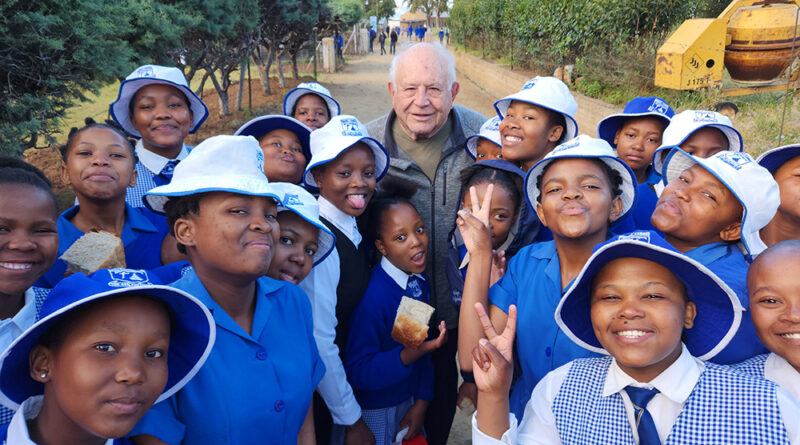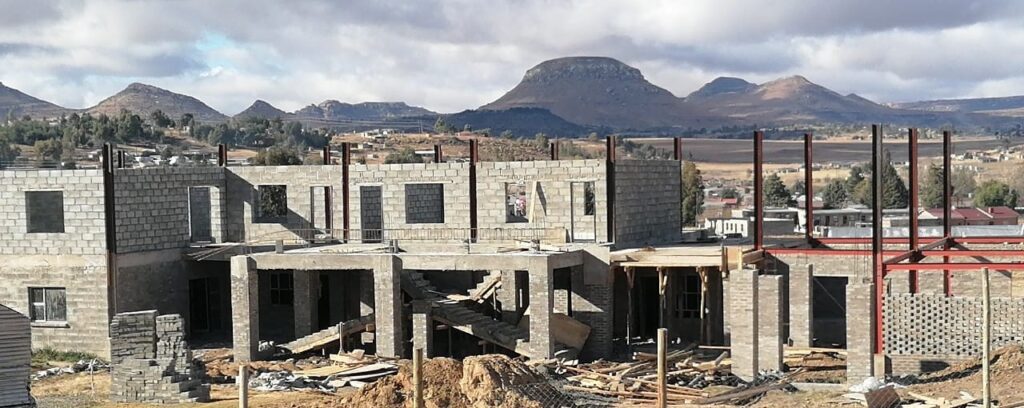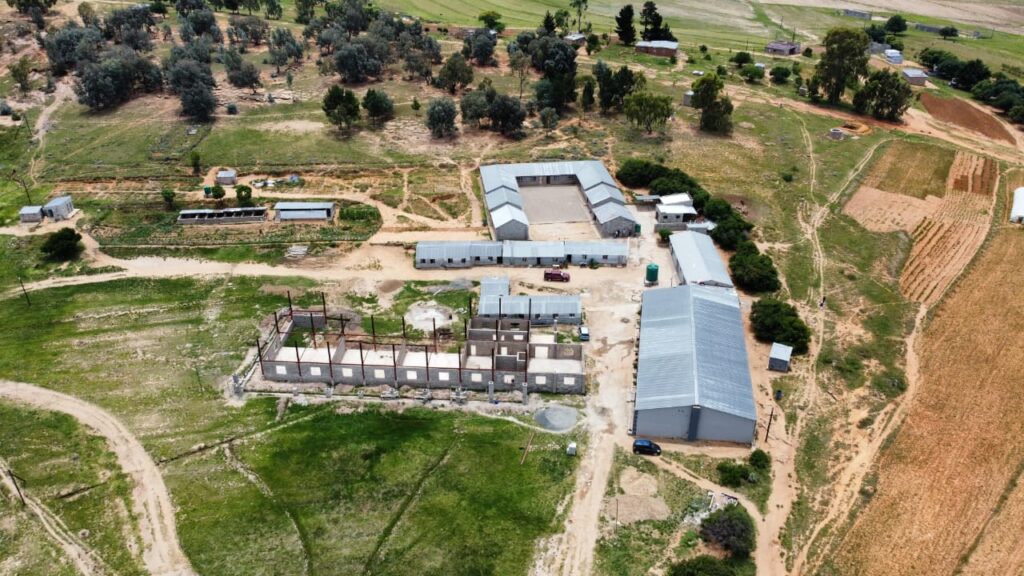African Children Find Hope through New School Supported by San Marcos Couple
Lesotho, a landlocked country in Southern Africa, is one of the poorest nations in the world. Yet, they place a tremendous value on education. In fact, Lesotho actually spends a higher proportion of its GDP (13%) on education than any country in the world. Despite this investment, free education is only available for students through primary school. As a result, only 24% of Lesotho’s learners are able to receive a secondary or high school education.
Predominantly an agrarian culture, Lesotho is so impoverished that many men leave home for extended periods, to work in the South African mines just to provide for their families. In such an environment, education is regarded as they only way for the next generation to break the desperate cycle of poverty.
This story is nothing new to David and Gretchen Kast, a San Marcos couple who have dedicated their lives to educating children in Lesotho. The son of Swiss missionaries, David was born and raised in Lesotho, while Gretchen, was just two years of age when her family sailed from California to spend a lifetime of service in Ghana.
After working in an East London bank to earn enough money to get to the States, David left Africa to attend college in Santa Cruz. Ironically, also around that time, Gretchen left Ghana to attend the same college. It was there that they met and fell in love. The couple married one week after their graduation and immediately left California to take up residence in David’s childhood home of Mount Tabor in Lesotho.
Moving to Lesotho as a newlywed, Gretchen drew on her degree in education as she taught students from kindergarten through high school over a 9-year period. The couple also provided basic medical and dental services in that remote setting since the nearest hospital was several hours away on dirt roads.
At that time, six out of every 10 babies born in Lesotho died before the age of two. Moved by this tragic statistic, Gretchen crossed the border to South Africa to undertake an intense course of midwifery training. Upon her return to Lesotho, she began a bare-bones maternity clinic, eventually delivering over 100 healthy babies—and pulling over 1,000 teeth. Meanwhile, David founded five schools and constructed 18 buildings—all of which are still standing today.
Little did the Kasts know they had only planted a seed of hope. Nearly a decade later, the couple returned to California where David began his doctoral studies, Gretchen worked in finance, and they raised two daughters— both now based in San Diego. All the while, they continued to raise funds for their village back “home” and committed to visit Lesotho every few years.
Since retiring from 50+ years in the ministry and academia, David’s primary focus has turned to his lifelong passion for landscape design. After settling in San Diego County in 2003, he obtained his State Contractor’s License and launched Swiss Gardens. Realizing the greater impact they can make from afar, the Kasts created the business to invest profits from his firm to underwrite his continuing interest in projects in Africa.
Now in their mid-80’s, David still works full time, helping his customers fulfill their landscaping dreams, while Gretchen manages administration for both the business and their non-profit. To date, the couple has donated the bulk of their earnings, and time, to the next generation in Lesotho.
But now, comes their greatest legacy.
Introducing Hope English High School in Mafeteng, Lesotho. With a current enrollment of 1,200 eager students, Hope School, offers an inspiring story of determination and hard work. 
Formed as an extension of Mount Tabor High School—founded in 1968 by David and Gretchen—Hope started at a “grass roots” level by volunteer teachers. For years, students gathered under make-shift corrugated iron structures that lacked insulation from the heat or cold. Despite such limited facilities, Hope School consistently produced excellent academic results.
One of the unique features of Hope School is that it is an English-Medium campus, meaning that all subjects are taught in English. Lesotho’s secondary schools cover a five-year program and students must pass the nationally-administered Cambridge Overseas School Certificate to progress further.
The students of Hope School are motivated by a dedicated staff of 30 teachers. Unfortunately, Lesotho’s Department of Education currently funds only two of those teachers. Consequently, most of the teachers are paid from school fees collected from the students and their parents.
Currently under construction is a double-story Learning Center that will provide eight classrooms, in addition to the administration office, registration office, faculty room, and dispensary. This month, (even while construction continues on the upper level), students have moved into the ground floor classrooms of the Learning Center.
In consideration of Hope School’s limited resources, the Board and administrators are determined to complete the building without incurring any indebtedness. Although this pay-as-you-build approach has slowed construction, it is representative of the financial stewardship which has been a hallmark of the Hope School story.
With the help of family and friends, the Kasts have invested over $80,000 into the construction project at Hope School, regularly donating some of their profits from David’s landscaping firm. The estimated cost to complete the Learning Center will be approximately $60,000.
To help make the campus more self-sustaining, Hope School has initiated several student-led programs. These projects encourage the students to develop their agricultural skills, while growing vegetables in on-site gardens and raising livestock, chickens and eggs, both to sell and to supplement their diet.
The life-altering future of Hope School is almost limitless. Adjoining the existing 3.5-acre campus is an available 4.5-acre lot. Negotiations are currently underway to purchase that site for future expansion.
The ultimate vision is to develop a trade school on the property and, eventually to add dormitories, athletic fields, a health clinic, and similar service projects. Given such far-reaching ambitions, it seems fitting that this campus was given the name, Hope School.
To learn more about their vision, or to contribute to their nonprofit, contact the Kasts at dgkast2@gmail.com.






